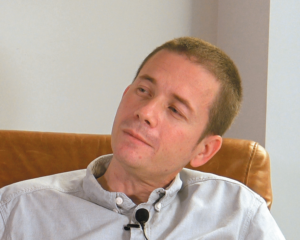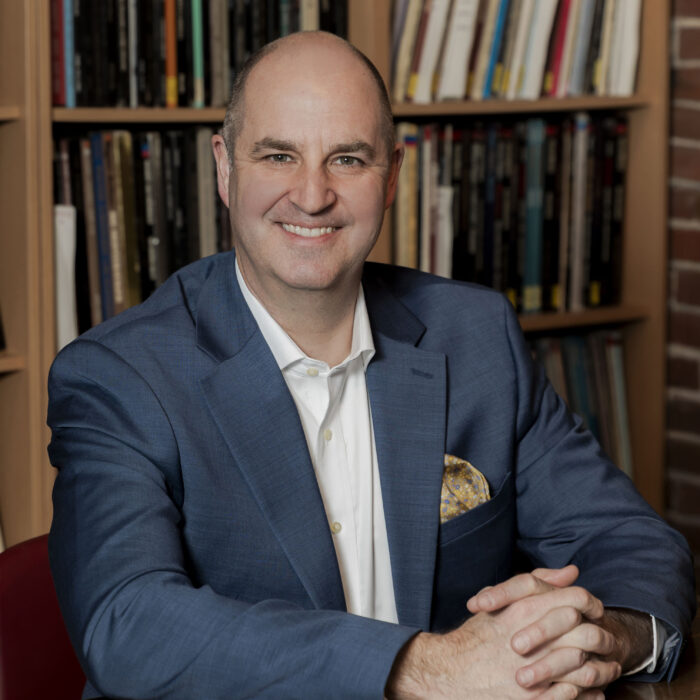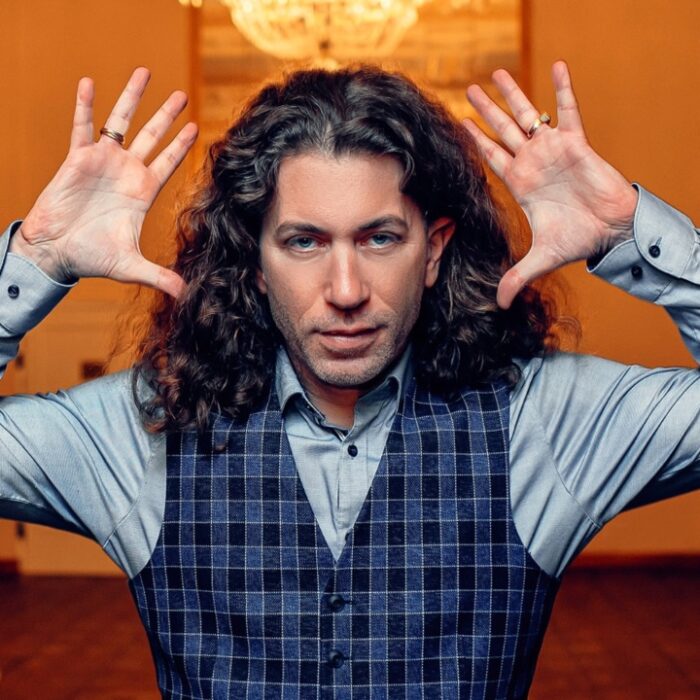
Q & A: Soprano Emma Bell on Lyric vs. Dramatic Roles, Interpreting ‘Vanessa’ & ‘Fidelio’
By Dejan Vukosavljevic(Credit: Paul Foster-Williams)
In recent seasons, British soprano Emma Bell has developed her repertoire, moving from the Mozart heroines, with which she established her career, to the key dramatic roles of Wagner and Beethoven.
She has performed at the Teatro alla Scala, Royal Opera House Covent Garden, Metropolitan Opera House, Bayerische Staatsoper, Staatsoper Hamburg, Deutsche Oper Berlin, among others.
OperaWire has recently spoke with Emma Bell about the development of her career and her relationship to the role of “Vanessa,” and a future production of “Fidelio.”
OperaWire: When did you discover your love for classical music?
Emma Bell: Music was always in the house but not necessarily classical music. Voices like Tina Turner, Streisand and Bassey were on tap. I was in the local church choir as soon as I was old enough and subsequently every single choir within a 30 miles radius! I think my total love of the classically trained voice was awakened very early on by certain experiences. The local operatic society joined forces annually with our youth group Sprouts and I cannot tell you HOW MUCH I wanted to sing like the woman who sang Lady Thiang in The King and I or Nancy in Oliver. Mum bought me Madame Butterfly and the St. Matthew Passion on tape and my poor neighbours endured it on a loop.
OW: How did you know you would become an opera singer?
EB: Hard to say really. I just always knew. I remember asking my primary school teacher to sing rounds with me, I always wanted the best part in the school musicals and I distinctly recall us going round the table at school asking what are you going to be when you grow up and my answer was “I’m going to be an opera singer.”
Our secondary school music teacher was classically trained and she sang at a prize giving event at school. Without a shadow of a doubt this moment lit the fire in my belly and I saw up close a normal human being singing in a way that made the hairs stand up on my neck. I asked her for singing lessons but I was not taking music as a subject and she left the school not long after. The door closed for a while but the desire did not.
OW: Between 1998 and 2002 you were member of the ensemble of the Komische Oper in Berlin. What were your experiences there?
EB: I loved the Komische Oper and met so many fantastic people. I remember the baptism of fire when singing my first role there, Contessa, AUF DEUTSCH! As if it is not hard enough to a get a fluent conversation in a recit. when your colleagues are present, my first ever rehearsal was on my own! I was so unprepared for the “wiederaufnahme (revival)” process.
I have such respect for this system and the professionalism of my on and off stage colleagues. It opened my eyes to a work ethic we don’t know in the UK. The notion that you are holding X number of roles and productions “ready to go” throughout a whole season is something that just doesn’t happen on the home scene.
OW: You first roles were centered on Mozart operas. You performed Elettra in “Idomeneo,” Donna Elvira in “Don Giovanni,” and Contessa Almaviva in “Le Nozze di Figaro,” among others. Then you switched to more dramatic repertoire like Elsa in “Lohengrin,” Elisabeth and Venus in “Tannhäuser,” Leonore in “Fidelio,” and Eva in “Die Meistersinger von Nürnberg.” How did that switch happen?
EB: It was a natural transition. I have never stopped having singing lessons and the trajectory of my vocal development seemed to unravel exactly as we thought/hoped/planned it would. New roles can challenge you but those challenges should lead to a better, stronger instrument and inform the decisions that come next. “Fidelio” has always been quite central in vocal development stepping stones. I have sung Leonore always with the instrument I had in that moment and each time my voice changed due to the technical demands. I remember saying to my singing teacher “this run has forever changed my G.” Sometimes things change in small increments and other times a huge development happens and there’s a race to make the rest of the voice catch up a bit.
OW: Last year you had debuted in the title role of Barber’s opera “Vanessa” at the Glyndebourne Festival. How did you prepare for the role of Vanessa?
EB: As with all new roles I start by winning the psychological battle of highlighting all my lines and then putting sticky notes to mark off the parts where I do not sing in the score. This has to be done before ANYTHING else. I have to get the measure of the task. I think this hails back to the first role I was given at college where before the Christmas break
I was given the main role in a Handel opera and we were to start the rehearsals when we returned in the new year. I was so completely at a loss about where to begin with this task I think I spent the first 10 days in a blind panic achieving nothing. So I do now have a very strict method when learning:
- How much do I need to learn
- Translation (which was not necessary for Vanessa of course)
- Comprehension
- Musical overview where I start to hear the harmonic structure ready for the hours of single finger note bashing at the piano.
Vanessa was surprisingly tricky at times to learn with some unexpected harmonic twists and turns. Of course these things always become part of the DNA of a production in the end and you wonder how it could ever have posed a problem.
EB: Who is Vanessa, in your view?
EB: Vanessa is a passionate woman in waiting. She sets herself in aspic waiting for the return of Anatol – 20 years of atrophy to be precise! We first meet her wound up like a spring preparing for his arrival. Her fear that he would no longer love her or accept any of the normal changes of ageing leave her deeply insecure.
The absolutely genius turn here is that HER Anatol does not turn up but his son instead. Vanessa is able to transfer all her feelings in what seems like an instant. She sees the opportunity to live, to escape the shackles of a debilitating waiting game and to love. To do this she must blinker herself to the reality of the hurt she causes Erica and she must actively embrace the superficiality of the life she will embark on. She is a perfect example of evolve or die.
OW: What was the greatest challenge performing the role of Vanessa?
EB: I think the challenge was not so much related to performing but rather managing the nauseating enthusiasm I had about turning up to work each day. I was like a hyperactive child, fresh batteries for every rehearsal! I don’t ever think there is one single challenge with a new role. I encounter little “unforeseens” that crop up from time to time. For example, realizing that having run down a flight of stairs you are now in no position to sustain a certain phrase.. Pulling your technique, your acting and your movement together to make a cohesive character portrayal is always the goal but so very little of our time rehearsing Vanessa felt challenging, it was more of a natural unravelling.
OW: Was that your first time to collaborate with director Keith Warner? What were your experiences?
EB: Yes, this was our very first introduction and it was a little slice of heaven from the get go! Keith had known Vanessa for a very long time and had a personal link to Gian Carlo Menotti. It was a perfect storm really. His vision for the piece had been inside him, brewing, for a long time and I don’t think a better suited cast could have been chosen. We were as one from day one. The atmosphere in the room is so balanced with Keith.
There is room for humor and breaking of tensions but there is no mistaking the reason we are all in the room is to become a team of actors with our eyes on one single goal. The concentration in the room was almost tangible.
OW: What do you think audiences took away from the performance?
EB: I say this with my hand on my heart. I think “Vanessa” fueled after-show conversation, speculation, intrigue, and talk of pure theatrical delight in a way I have seldom experienced. Of course I have been in shows that audiences have loved, I have been an audience member of shows I have loved but the chatter after has never quite been as it was in the Long bar after “Vanessa.” People were genuinely fired up about the themes, they had enough information to understand but enough information withheld to invent and query.
I think “Vanessa” ticks all the boxes for the audiences. I think “Vanessa” was everything Glyndebourne does so well. The production values on this piece were second to none. This production was the sum of all its parts, the balance seemed perfect with no one element starring- the sets, the costumes, the playing in the pit, the actors, the singers. Every single element held its neighbor up to the light.
OW: You will sing the role of Leonore in “Fidelio” this year at Glyndebourne. This new production by Frederic Wake-Walker has been specially commissioned for Beethoven’s 250th anniversary year. You’ve sung it so many times, what will you be looking for in this production?
EB: I am so excited about this! I am looking forward to seeing the piece with fresh eyes. A new production is always a privilege because you go back to ground zero. You may have a whole bag full of ideas and experiences from other incarnations but the thrill of a new production, and a collaboration with a director who doesn’t know you, is to discover all the stuff you didn’t know was missing from your bag! I actually saw “Fidelio” live for the first time at Glyndebourne 19 years ago and I was pretty adamant that she would never be a role for me! A number of outings later I’m thrilled to perform it at home.
OW: Which of the characters that you have performed so far is most similar to you, and why?
EB: Oddly it probably is Leonore. She is loyal and determined, cannot bear injustice, would fight to the death for those she loves, and looks good in a suit.
Also Elizabeth in Wagner’s Tannhäuser strikes a chord with me. Her defense of Tannhäuser, her inability to suppress her disgust at the baying crowd feels akin to how I react to things. She has that same sentiment that Ellen does when she says “let those among you without fault cast the first stone’. Women with hefty moral compasses.
OW: How do you deal with huge stresses of operatic singing?
EB: I can pass hours by in my garden. Plants bring me such joy and a blossoming garden unravelling in Spring is truly one of the greatest pleasures in life, one of the free ones at any rate! I have been playing at pottery for a while now and find any creative outlet drops my pulse. Walking on the South Downs is my regular inner peace mission. An empty horizon out at sea accompanied by the sound track of rolling waves.




